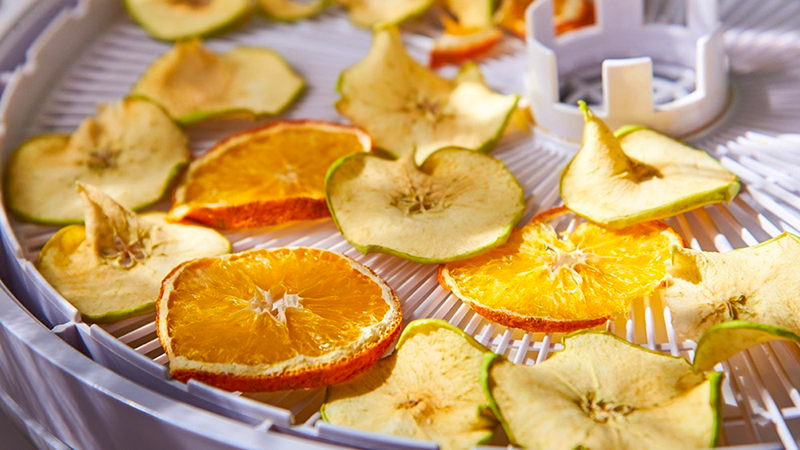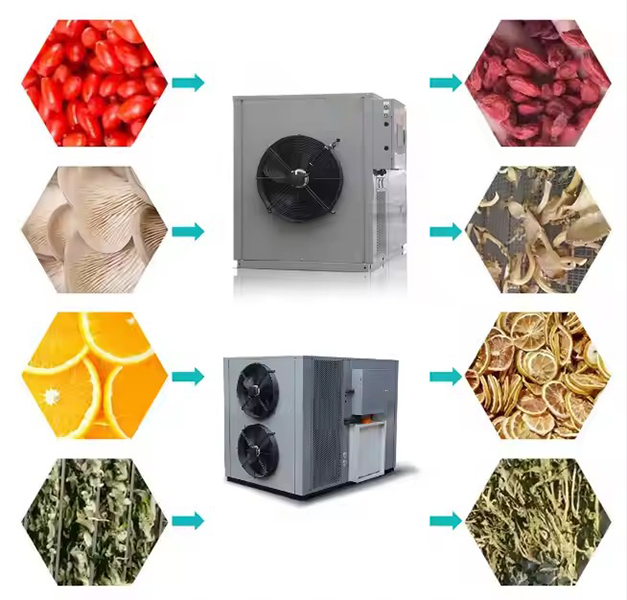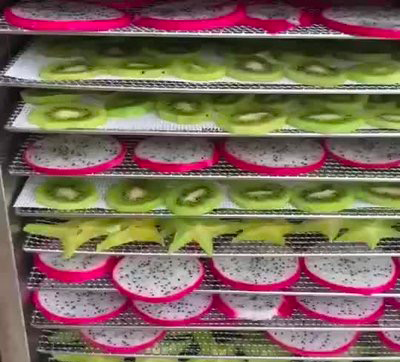
Content Menu
● Understanding Heat Pump Dryers
● Key Features of Heat Pump Dryers
● Types of Heat Pump Dryers
● Advantages of Heat Pump Dryers
● Considerations When Choosing a Heat Pump Dryer
● Applications of Heat Pump Drying
● Future Trends in Heat Pump Drying Technology
● Conclusion
● FAQ
>> 1. What is a heat pump dryer?
>> 2. How does energy efficiency affect operating costs?
>> 3. Can heat pump dryers be used for all types of food?
>> 4. What maintenance is required for heat pump dryers?
>> 5. Are there any environmental benefits to using heat pump dryers?
● Citations:
In the realm of food processing, heat pump dryers have emerged as an innovative solution for dehydrating food products while preserving their quality. As a manufacturer of food drying machines, understanding the best features to look for in a heat pump dryer can significantly enhance your offerings to international brands and wholesalers. This article will delve into the essential characteristics that make a heat pump dryer effective, efficient, and user-friendly.

Understanding Heat Pump Dryers
Heat pump dryers utilize a refrigeration cycle to remove moisture from food products at lower temperatures compared to conventional drying methods. This process not only conserves energy but also helps maintain the nutritional value and flavor of the food.
The basic principle behind heat pump drying involves the evaporation of moisture from the food product, which is then condensed and removed from the system. Unlike traditional dryers that rely on direct heat, heat pump dryers recycle energy by transferring heat from the air inside the dryer to the moisture-laden air. This results in a more efficient drying process that is particularly beneficial for sensitive food items.
Key Features of Heat Pump Dryers
When selecting a heat pump dryer, consider the following features:
- Energy Efficiency: Heat pump dryers are known for their low energy consumption. They can recover and reuse heat, making them more efficient than traditional dryers. This feature is especially important for businesses looking to reduce operational costs and minimize their carbon footprint.
- Temperature Control: The ability to precisely control temperature is crucial. Heat-sensitive foods can be dried without compromising their quality. Advanced models allow users to set specific temperature profiles tailored to different types of food.
- Moisture Control: Effective moisture management ensures that food is dried evenly, preventing spoilage and enhancing shelf life. Many modern heat pump dryers come equipped with sensors that monitor humidity levels and adjust drying parameters accordingly.
- Versatility: A good heat pump dryer should accommodate various types of food, including fruits, vegetables, meats, and herbs. This versatility allows manufacturers to expand their product lines without investing in multiple drying systems.
- User-Friendly Interface: Digital controls with programmable settings allow users to customize drying times and temperatures easily. Some models even feature touchscreens that provide real-time feedback on the drying process.
- Durability: High-quality materials and construction ensure longevity and reliability in commercial settings. A robust design can withstand the rigors of continuous operation and reduce maintenance needs.
Types of Heat Pump Dryers
Heat pump dryers come in various designs:
- Batch Dryers: Ideal for small to medium-scale operations, these dryers process batches of food at a time. Batch dryers are often more affordable and easier to operate for businesses just starting with dehydration.
- Continuous Dryers: Suitable for large-scale production, these systems continuously feed and dry food products. Continuous dryers are designed for high throughput and can significantly increase efficiency in large operations.
Advantages of Heat Pump Dryers
The advantages of using heat pump dryers include:
- Low Operating Costs: Due to their energy efficiency, operational costs are significantly lower than traditional drying methods. This cost-effectiveness can lead to higher profit margins for businesses.
- Improved Product Quality: By drying at lower temperatures, the nutritional content and flavor of the food are preserved. This is particularly important for health-conscious consumers who prioritize natural ingredients.
- Environmental Benefits: These dryers produce less waste heat and can operate effectively in humid conditions. Their reduced energy consumption contributes to lower greenhouse gas emissions, making them an eco-friendly choice.
- Enhanced Shelf Life: Properly dried foods have extended shelf lives, reducing waste and improving profitability for producers. Heat pump drying minimizes oxidative damage, which can lead to spoilage.
Considerations When Choosing a Heat Pump Dryer
When selecting a heat pump dryer for your production line, consider:
- Capacity Needs: Assess the volume of food you plan to process to determine the appropriate size and capacity of the dryer. Understanding your production requirements will help you choose a model that meets your operational goals.
- Maintenance Requirements: Choose a model that is easy to clean and maintain to minimize downtime. Regular maintenance is essential for optimal performance; look for designs that facilitate easy access to components.
- Cost vs. Features: Balance your budget with the essential features that will benefit your production processes. Investing in high-quality equipment may incur higher upfront costs but can lead to savings in energy and maintenance over time.

Applications of Heat Pump Drying
Heat pump dryers are versatile and can be used in various applications:
- Fruit and Vegetable Drying: Ideal for preserving seasonal produce without losing flavor or nutrients. Dried fruits like apples, bananas, and berries are popular snacks that retain their natural sweetness when dried properly.
- Meat Jerky Production: Capable of safely drying meats at controlled temperatures to prevent spoilage. The low-temperature drying process ensures that jerky maintains its texture while being safe for consumption.
- Herb Drying: Maintains the potency and aroma of herbs by preventing overheating during the drying process. Dried herbs can enhance culinary dishes while providing longer shelf life compared to fresh herbs.
- Snack Food Production: Many snack foods benefit from dehydration processes, including vegetable chips or fruit leathers, which appeal to health-conscious consumers looking for nutritious snack options.
Future Trends in Heat Pump Drying Technology
As technology continues to evolve, several trends are shaping the future of heat pump drying:
- Smart Technology Integration: The incorporation of IoT (Internet of Things) technology allows users to monitor and control their dryers remotely via smartphones or tablets. This feature enhances convenience and provides real-time data on drying conditions.
- Sustainability Initiatives: With increasing awareness around sustainability, manufacturers are focusing on creating more eco-friendly designs that utilize renewable energy sources or incorporate recyclable materials into their construction.
- Advanced Automation: Automation technologies are being integrated into heat pump dryers to streamline operations further. Automated loading systems can improve efficiency by reducing labor costs associated with manual handling.
Conclusion
In summary, heat pump dryers represent a significant advancement in food dehydration technology. Their energy efficiency, precise temperature control, and ability to preserve product quality make them an excellent choice for manufacturers looking to enhance their product offerings. By focusing on these key features when designing or selecting a heat pump dryer, you can ensure that your machines meet the demands of international markets while providing high-quality results for end-users.
Investing in a high-quality heat pump dryer not only improves operational efficiency but also supports sustainable practices within your business model. As consumer preferences shift towards healthier options, having reliable equipment capable of producing top-notch dehydrated products will position your company favorably in a competitive market.

FAQ
1. What is a heat pump dryer?
A heat pump dryer is an appliance that uses a refrigeration cycle to remove moisture from food products at low temperatures, preserving their quality and nutrients.
2. How does energy efficiency affect operating costs?
Energy-efficient heat pump dryers consume less electricity than traditional dryers, leading to significantly lower operating costs over time.
3. Can heat pump dryers be used for all types of food?
Yes, heat pump dryers are versatile and can effectively dry fruits, vegetables, meats, herbs, and more while maintaining their quality.
4. What maintenance is required for heat pump dryers?
Regular cleaning of filters and trays is essential to ensure optimal performance. Additionally, periodic checks on seals and components can help maintain efficiency.
5. Are there any environmental benefits to using heat pump dryers?
Yes, they produce less waste heat and can operate effectively in humid conditions, making them environmentally friendly compared to conventional drying methods.
Citations:
[1] https://www.choice.com.au/home-and-living/kitchen/benchtop-cooking/buying-guides/food-dehydrators
[2] https://www.seriouseats.com/best-food-dehydrators-5216308
[3] http://sciencebeingjournal.com/sites/default/files/Octa%20J.%20Biosci.%20Vol.%2010%20(2)124-133_0.pdf
[4] https://www.alamy.com/stock-photo/food-dehydrator.html
[5] https://www.youtube.com/watch?v=9DSGcVhjHEc
[6] https://www.fortress.com.hk/en/promotion/buying-guides/food-dryer
[7] https://www.thespruceeats.com/best-food-dehydrators-4077285
[8] https://annals.fih.upt.ro/pdf-full/2016/ANNALS-2016-1-34.pdf
[9] https://www.istockphoto.com/photos/food-dehydrator
[10] https://www.youtube.com/watch?v=mtDzdYoyeR8











